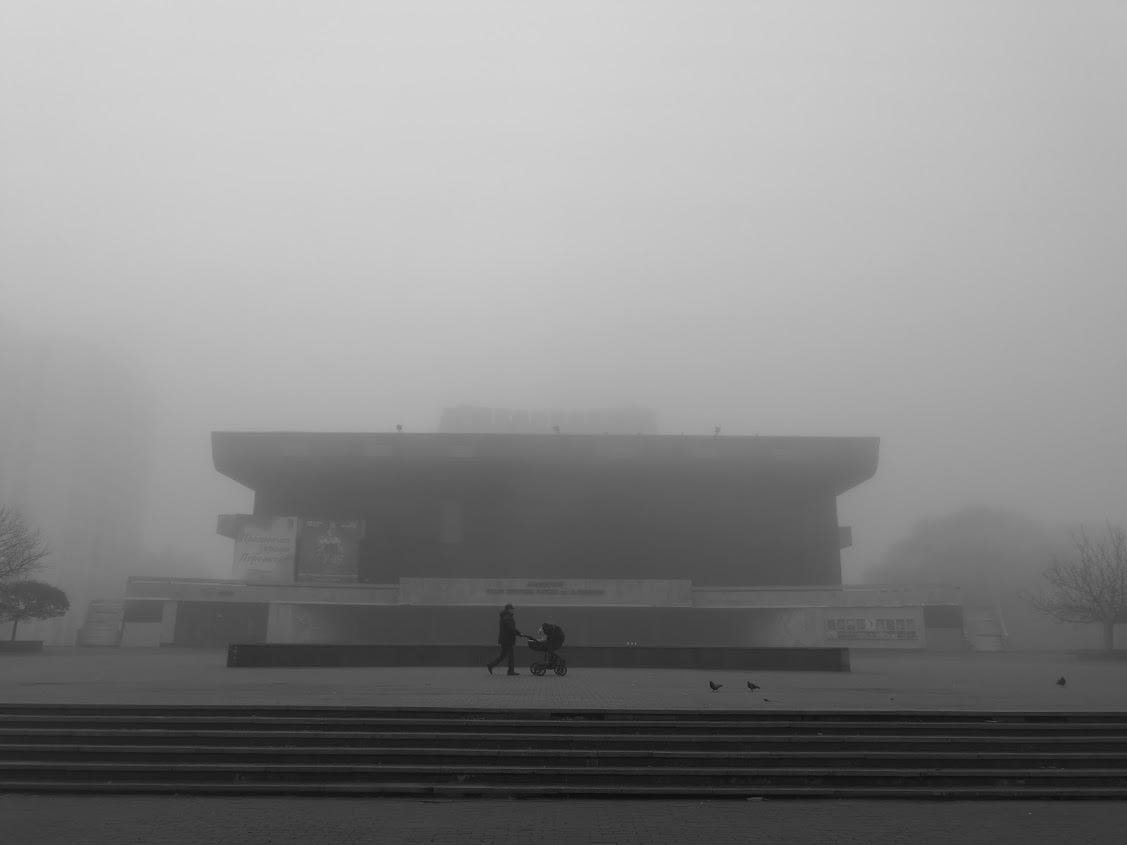KYIV—Hello everyone. This will be my last dispatch from Ukraine for the year, as I prepare to head back to France for the Christmas holidays (currently writing this from one of the quiet and majestic waiting rooms of the Kyiv train station).
It feels strange to leave now. Last year at the same time, Kyiv was rocked by regular Russian missile attacks, its inhabitants already settled into the surreal routine of life amid daily power cuts. There hasn’t been anything of the sort yet this year, though everyone has been expecting the start of the Russian winter air campaign for weeks now. The wait is anxiety-inducing in itself, an unsettling silence that leaves everyone wondering what Moscow is planning—some people half-jokingly told me they wished Russia would kick off their missile campaign already so they could get it over with. The November 25 drone attack, the first time in six months I’ve been awakened by the explosions of air defense units in Kyiv, was initially seen as the beginning of that campaign—and then nothing.
Last year’s power cuts made life pretty miserable, yet there’s no doubt that the mood is much worse today, probably the worst it’s been since the beginning of the Russian invasion. I’ve discussed this change of mood several times (maybe too many times) in this newsletter, but it really is inescapable in Ukraine right now.
This war, like all wars, goes through ups and downs, and many people (from the most normal Ukrainian to the most respected Western analysts) do tend to overemphasize the immediate situation—expecting an imminent victory for Ukraine when things are going well, turning apocalyptic when things aren’t. There’s a compelling thread about this by journalist Neil Hauer, pointing out the many, many times this has already happened in the past 21 months of this war. Noting that war is unpredictable isn’t exactly a searing insight at first glance, but the past two years have shown it is very easy to forget it. Maybe it’s not that people forget, though. Maybe it’s more that unpredictability is often seen under the hopeful lens of that one event that will dramatically alter the course of the war. Unpredictability as a warning that what happens now—whether good or bad—may not keep happening, because what happens now may not reflect the deeper trends at work, is a more bitter pill to swallow.
I think there is also a natural but dangerous tendency to think of the past, including the immediate past, as a closed chapter. A few weeks ago, I worked in the Kharkiv region, including in several villages that were occupied by Russian forces last year. And at some point, I realized that I was thinking of what had happened there in 2022 as a complete story. Villages and towns fell under occupation, lived for months as Russian troops pressured, arrested and tortured people, and were finally liberated thanks to the September 2022 Ukrainian counter-offensive. That’s a complete narrative—from the harrowing beginning, to the uplifting conclusion, and even the bittersweet afterword, as people in some of these villages attempt to keep living despite the destruction and trauma. There was now a new story, about rebuilding, about adapting to the war conditions, about tensions in places where some locals sided (or were accused of siding) with the Russian forces during the occupation. And yet, of course, it is still very much the same story. Those villages could fall under occupation a second time, could once again find themselves under relentless shelling. People who fled and then came back could be forced to leave again. Nothing is settled, everything is fragile and uncertain.
ICYMI
Recently-published stories from Western media
The Washington Post / Ukraine’s Zelensky appears increasingly embattled as U.S. backing wavers (A good recap of the current political situation, though I wish Klitschko’s comment about Ukraine sliding towards autocracy had been put in the context of the long-standing feud between the Kyiv mayor and the Ukrainian president)
OpenDemocracy / This van provides a lifeline service to Ukrainians. Could it be under threat?
Financial Times / The crackdown on Ukraine’s oligarchs
The New York Times / Frontline Troops in Ukraine Feel Bite of Polish Truckers’ Protest
OpenDemocracy / ‘What life is this?’: Escaping Ukraine’s occupied territories
The Wall Street Journal / A Ukrainian Photographer on the Horror—and the Normality—of Covering a War at Home
NPR / How Ukraine's tech experts joined forces with the government despite differences
The New York Times / Surviving Winter in a Decimated Ukrainian Village




